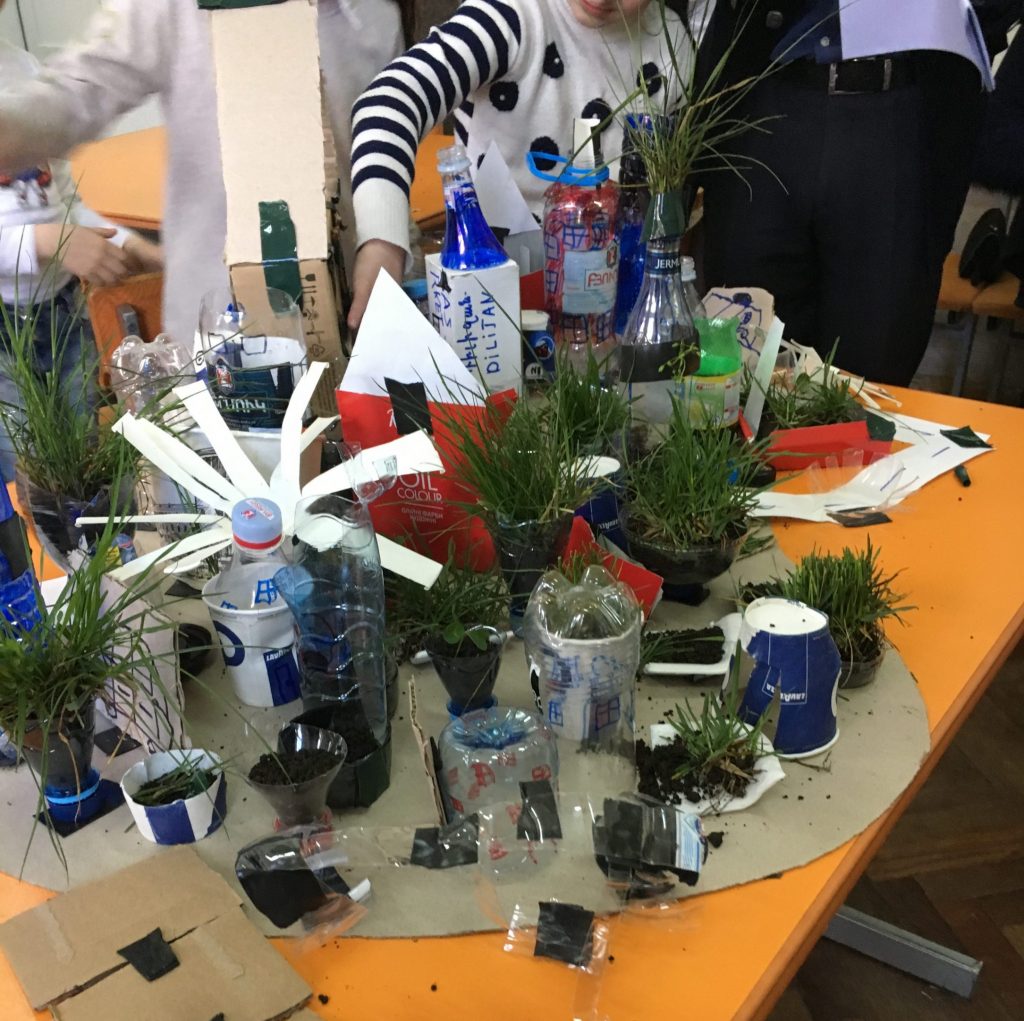These two weeks were for a very intense and interesting experience, both concerning our individual and professional development.
We found out rather quick, that our group has a common interest in nature. Therefor we decided to bring the global discussion around the environmental issues into the classroom. Although it took us a little time to find a common language, not only concerning English-Armenia, but more regarding our understanding of how to create an exercise. After this was cleared out the work in our group got more dynamic. It was really helpful during our planning and the co-teaching, that we gave each other sufficient respect, space and declared clear roles in the classroom. Something wich worked out very well especially when we had to make fast decisions as a group concerning changed circumstances (like the age of the children or the length of the lesson). But not only the communication among us, but also the talks and individual support with the pupils were a new challenge. We learned a lot about the value and impact of non-verbal language.
It was very interesting to see how the pupils were at first a little overwhelmed with the exercise of creating a future city made out of garbage. On the one hand because the task was more open than they were just to, and on the other hand caused due to the unusual material of garbage. After a short time most of them were driven by their intrinsic creative energy. They got to know about the potential of the “worthless” material and their imagination and storytelling were captured. Also we realized the importance of the start and the end of the lesson. Therefor we introduced ourselves every time as a group and finished in the end with a big group discussion around the builded city. There we could see, how our aim to emphasize the consciousness of the environment during our lessons with this practical works were achieved.
